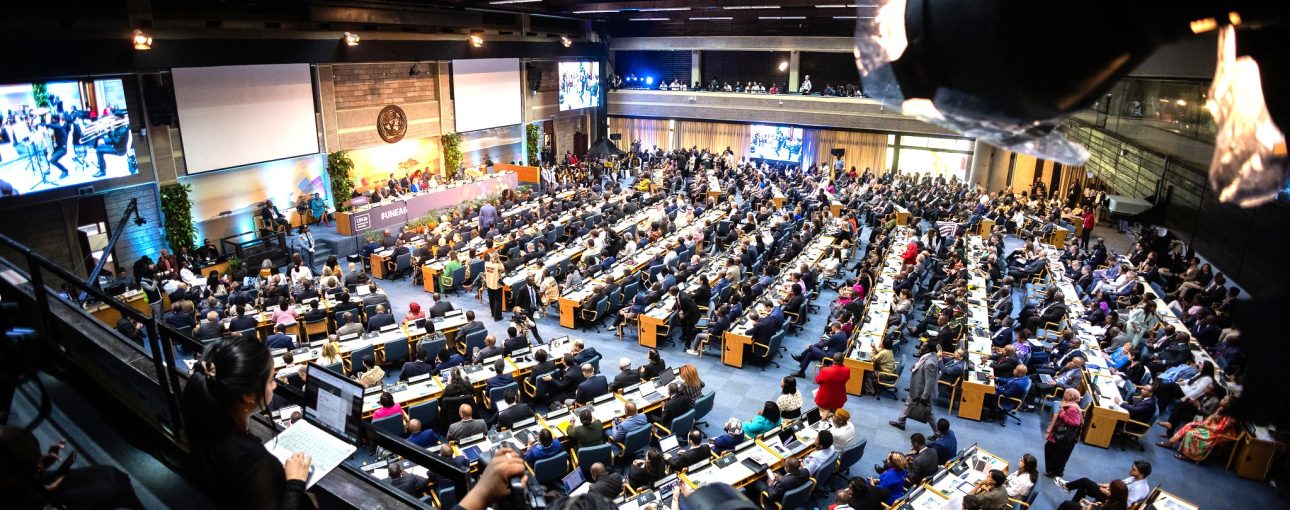Decoding UNEA-6: Implications for Africa's Climate and Environmental Agenda
In late February 2024, Nairobi, Kenya, became the focal point of global environmental diplomacy as it hosted the Sixth Session of the United Nations Environment Assembly (UNEA-6). This pivotal gathering underscored the pressing need for concerted global action to confront the triple planetary crises: climate change, biodiversity loss, and pollution. For Africa, a continent both vulnerable to and capable of influencing the trajectory of these global environmental challenges, the outcomes of UNEA-6 offer a roadmap towards a sustainable and resilient future.
A New Era of Environmental Multilateralism
UNEA-6 marked a significant step forward in reinforcing the importance of multilateralism in environmental governance. The assembly’s focus on fostering cooperation and convergence among Multilateral Environmental Agreements (MEAs) suggests a more unified global approach to addressing environmental issues. This strategy is particularly pertinent for Africa, where environmental challenges cross borders and demand collective action. The outcomes of UNEA-6 highlight the critical role MEAs play in facilitating international collaboration, essential for tackling issues from desertification to the illegal wildlife trade within the African context.
Energizing Africa with Renewables
The assembly’s emphasis on the rapid adoption of renewable energy resonates deeply with Africa’s energy needs and its vast potential for renewable energy sources. The call for tripling the current renewable energy capacity by 2030 aligns with Africa’s aspirations to leapfrog into sustainable energy solutions, mitigating climate change impacts while ensuring energy security for its growing population. Establishing global standards for renewable energy, as discussed at UNEA-6, could significantly benefit Africa, ensuring that the continent’s renewable energy expansion is both environmentally sustainable and aligned with global best practices.
Tackling Plastic Pollution: A Call to Action
Plastic pollution, a scourge affecting Africa’s urban and marine environments alike, was another critical issue addressed at UNEA-6. The push for a legally binding treaty on plastic pollution, emphasizing strong reuse provisions and the harmonization of definitions around reuse and circularity, is a significant step towards mitigating this global problem. For Africa, where waste management systems often struggle to cope with the surge in plastic waste, such international agreements offer a framework for action, potentially catalyzing regional and national policies to reduce plastic pollution and its environmental impacts.
Nature-Based Solutions: Africa’s Untapped Potential
The discussions at UNEA-6 on nature-based solutions highlight an area where Africa has both significant needs and opportunities. The continent’s vast natural landscapes, from its forests and savannas to wetlands and coastal ecosystems, offer immense potential for climate change mitigation and biodiversity conservation through nature-based solutions such as reforestation and ecosystem restoration. However, the acknowledgment of financial constraints at UNEA-6 points to a critical gap that needs bridging. For Africa, leveraging international support and innovative financing mechanisms will be key to unlocking the potential of nature-based solutions for sustainable development.A Path Forward for Africa
The outcomes of UNEA-6 provide a clear and actionable agenda for Africa in the face of global environmental challenges. By embracing the principles of environmental multilateralism, accelerating the transition to renewable energy, combating plastic pollution, and investing in nature-based solutions, Africa can not only mitigate the impacts of climate change but also harness these challenges as opportunities for sustainable growth. The path laid out by UNEA-6 is ambitious, but with concerted effort and international collaboration, Africa can secure a sustainable and resilient future for its people and ecosystems.

